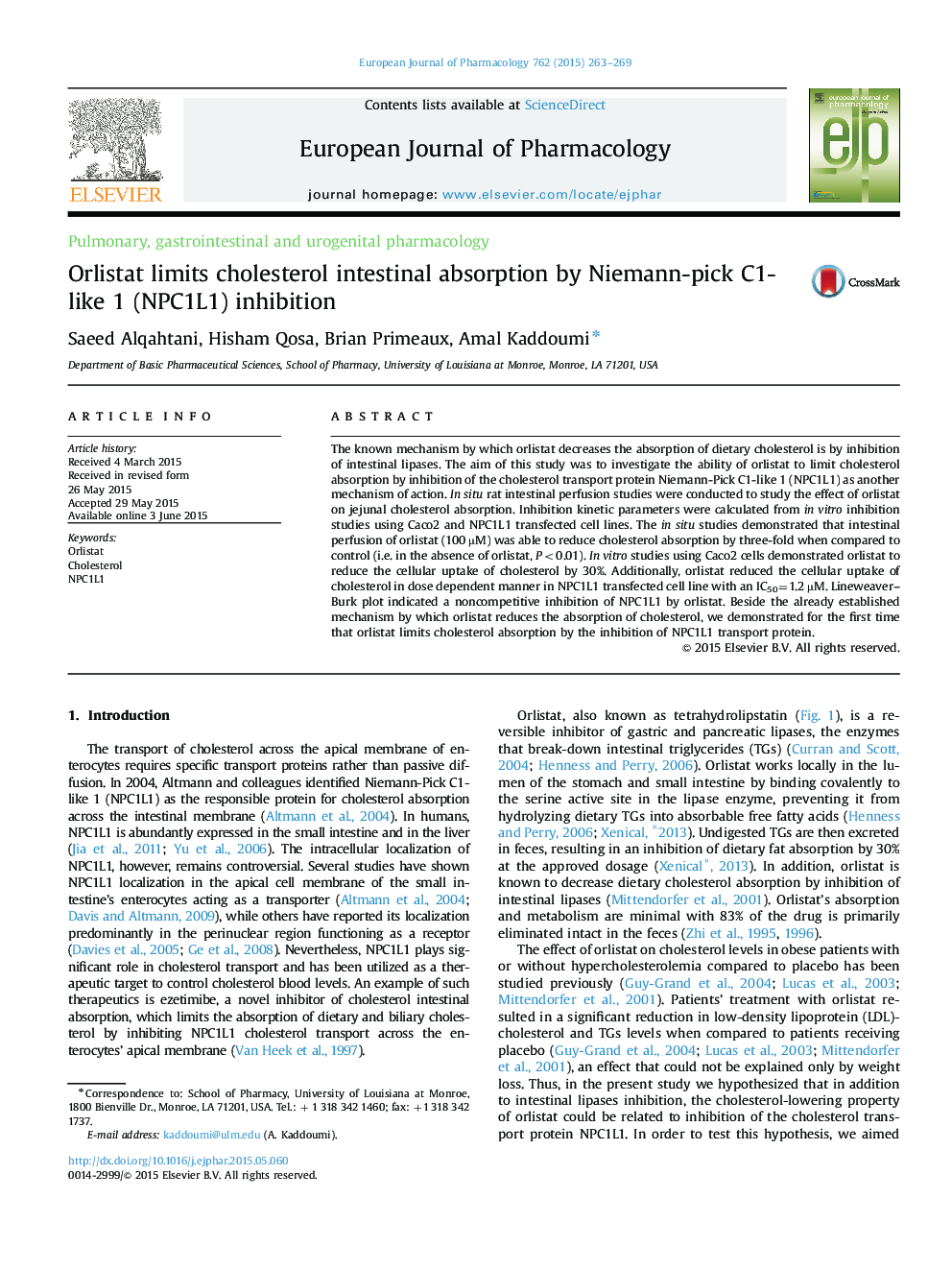| Article ID | Journal | Published Year | Pages | File Type |
|---|---|---|---|---|
| 5827240 | European Journal of Pharmacology | 2015 | 7 Pages |
The known mechanism by which orlistat decreases the absorption of dietary cholesterol is by inhibition of intestinal lipases. The aim of this study was to investigate the ability of orlistat to limit cholesterol absorption by inhibition of the cholesterol transport protein Niemann-Pick C1-like 1 (NPC1L1) as another mechanism of action. In situ rat intestinal perfusion studies were conducted to study the effect of orlistat on jejunal cholesterol absorption. Inhibition kinetic parameters were calculated from in vitro inhibition studies using Caco2 and NPC1L1 transfected cell lines. The in situ studies demonstrated that intestinal perfusion of orlistat (100 µM) was able to reduce cholesterol absorption by three-fold when compared to control (i.e. in the absence of orlistat, P<0.01). In vitro studies using Caco2 cells demonstrated orlistat to reduce the cellular uptake of cholesterol by 30%. Additionally, orlistat reduced the cellular uptake of cholesterol in dose dependent manner in NPC1L1 transfected cell line with an IC50=1.2 µM. Lineweaver-Burk plot indicated a noncompetitive inhibition of NPC1L1 by orlistat. Beside the already established mechanism by which orlistat reduces the absorption of cholesterol, we demonstrated for the first time that orlistat limits cholesterol absorption by the inhibition of NPC1L1 transport protein.
Graphical abstractDownload high-res image (221KB)Download full-size image
